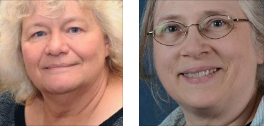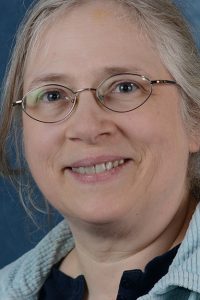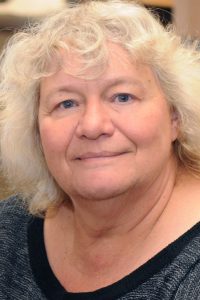Collins, Thomas Honored with Endowed Professorships

In recognition of their career achievements, faculty members Karen Collins and Ellen Thomas were appointed to endowed professorships.

Karen Collins, professor of mathematics, received an Edward Burr Van Vleck Professor of Mathematics, established in 1982.
Collins joined Wesleyan’s department of mathematics in 1986 after receiving her BA from Smith College and her PhD from Massachusetts Institute of Technology. Her research focuses on graph theory, enumerative combinatorics, and algebraic combinatorics. Her most recent publication was “Split graphs and Nordhaus-Gaddum graphs” (Discrete Mathematics, 2016). She has served on several prize committees, most recently the committee for the 2016 George Polya Prize in Combinatorics. She is a long-time member of the steering committee for the Discrete Mathematics Days of the Northeast, and served as both vice-chair and chair of the Society of Industrial and Applied Mathematics Discrete Mathematics Activity Group. At Wesleyan, she has directed many PhD and MA theses, and served as the chair of her department and on the Review and Appeals Board, the Faculty Committee on Rights and Responsibilities, and the Faculty Executive Committee.

Ellen Thomas, University Professor in the College of Integrative Sciences, received a Harold T. Stearns professorship, established in 1984.
Ellen Thomas received her BSc, MSc, and PhD from University of Utrecht, Netherlands. She has received the 2016 Brady Medal from the Micropalaeontological Society; the 2013 Professional Excellence Award from the Association for Women Geoscientists; the 2012 Maurice Ewing Medal from the American Geophysical Union and Ocean Naval Research; and she is a Fellow of the American Geophysical Union and the American Association for the Advancement of Science. Her research focuses on quantitative studies of benthic foraminifera as indicators of global, regional, and local natural and anthropogenic environmental changes, and geochemical and trace element analysis of their shells as proxy for environmental change. She has published extensively and received grants from numerous institutions, including the National Science Foundation, the Leverhulme Foundation, and the Yale Climate and Energy Institute.

